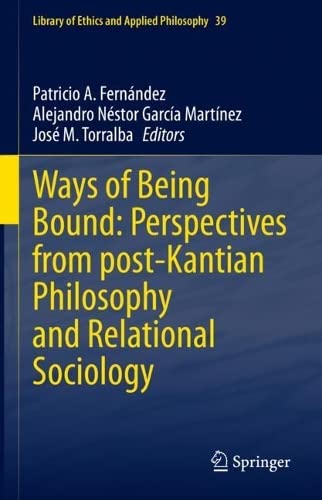

Most ebook files are in PDF format, so you can easily read them using various software such as Foxit Reader or directly on the Google Chrome browser.
Some ebook files are released by publishers in other formats such as .awz, .mobi, .epub, .fb2, etc. You may need to install specific software to read these formats on mobile/PC, such as Calibre.
Please read the tutorial at this link: https://ebookbell.com/faq
We offer FREE conversion to the popular formats you request; however, this may take some time. Therefore, right after payment, please email us, and we will try to provide the service as quickly as possible.
For some exceptional file formats or broken links (if any), please refrain from opening any disputes. Instead, email us first, and we will try to assist within a maximum of 6 hours.
EbookBell Team

4.3
48 reviewsThis book addresses the topic of 'being bound' from a philosophical and a sociological perspective. It examines several ways in which we are bound. We are bound to acknowledge the truth and to follow laws; we are bound to others and to the world. Who we are is partly defined by those bonds, regardless of whether we live up to them – or even of whether we acknowledge them. Puzzling questions arise from the fact that we are bound, such as: How are those bonds binding? Wherein lies their normative character? A venerable philosophical tradition, particularly since Kant, has provided an account of normativity that crucially appeals to such notions as “self-legislation.” But can our normative bonds be properly understood in these essentially first-personal terms? Many argue that our social condition resists any account of those bonds that fails to acknowledge the perspectives of the second and the third person.
The first part of the book explores these themes from a historical perspective in the tradition of transcendental philosophy (Kant, Fichte, Hegel, Husserl and Heidegger); it examines the phenomenon of “being bound”, i.e., why and how we are bound. The second part of the book offers a sociological analysis of social bonds that is both historical and systematic. Based on sociological approaches to “solidarity” and “reflexivity”, it explores the way in which the phenomenon of “being bound” manifests through the concept of a “social relation”.